#phthinoporon
Text
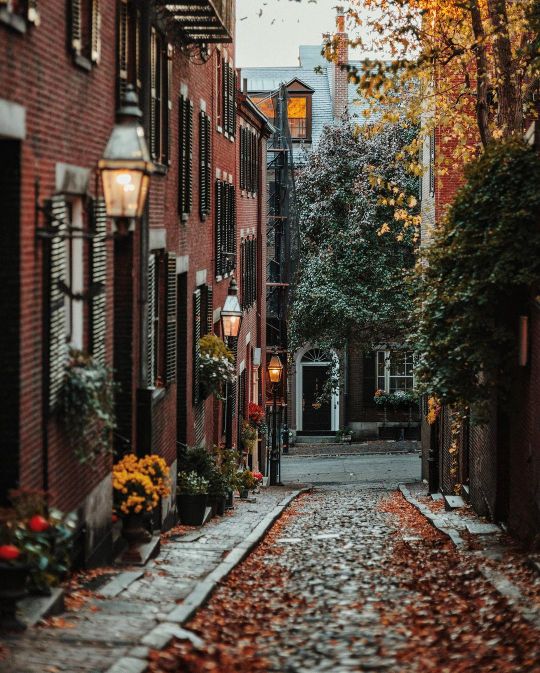
By magicinsalem
#autumn#fall#nature#cozy#october#love#fall blog#autumn blog#autumncozy#autumn cozy#fall vibes#fall asthetic#cosy#foliage#Herbst#jesien#podzim#syksy#automne#phthinoporon#herfst#najaar#fomhar#autumno#autumnus#otoño#sonbahar#osin´
10K notes
·
View notes
Text
Karpo Deity Guide
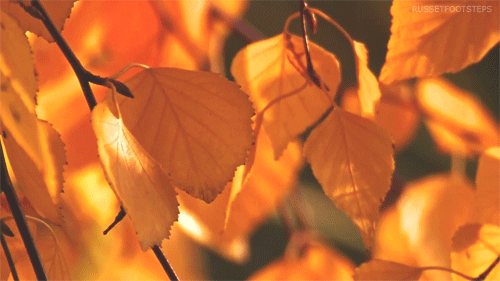
Who is Karpo?
Seen as somewhat of a minor deity in mythos, Karpo (Καρπω) , also written as Carpo, is the Greek goddess or one of the Horae—goddesses of the seasons—representing Autumn and harvest. The ancients had varying ideas of the seasons and these ideas would change depending on where, when, and who you asked.
In some places, there were three seasons, and so there were three Horae. In other places, there were only two, and in others, there were four or five.
Despite being a minor deity in mythology, Karpo (along with the other Horae) had some big jobs to do. Horae were in charge of guarding Olympus, helping Helios, protecting young humans and newborn gods, as well as running the passage of time and ripening fruit!
Parents and Siblings
For parentage, there are two main pairings I’ve found:
Zeus and Themis (Hesiod)
Helios and Selene (Later in Roman myth)
For siblings the list could go on forever, as this list would change depending on the parents. Instead, I’ll list the other Horae:
Auxo
Thallo
(Originally the three seasons’ goddesses were the Auxo, Thallo, and Carpo. Later other Horae were added)
Lovers or Partners
None listed
Children
None listed
Epithets
Phthinoporon (a later iteration of the goddess of Autumn, who some say is the same as Karpo)
The Bringer of Food/Fruits
Damia (possibly)
Notes
Karpo comes from the Greek Karpos meaning “fruit” but her name could also mean “harvest” in the context of the Horae.
The Horae were mostly worshipped by farmers.
It’s possible the name Karpo started as an epithet of Demeter.
Karpo is also described as also having been a Charity by Pausanias
I have found one mention of a festival—Horaea, with no date or timeframe given.
The Horae were often found in the company of Aphrodite, the Muses, and Apollo.
Karpo specifically has been associated with Dionysus, Persephone, Hera, and Pan.
In early Athens, only Karpo and Thallo were worshipped. They were also worshipped at Argos, Corinth, and Olympia.
The Horae are also seen as protectresses of newborn gods and of youths and as such were mentioned in the oaths that Athenian youths would make in the temple of Agraulos
They are depicted as young maidens, often dressed lightly and covered in flowers. The Horae are pleasant and kind towards humans, neutral at worst.
Modern Deity Work
Not much is known about how the Horae were worshipped, so I have done my best to find some traditional offerings and correspondences as well as modern ones.
Correspondences
Rocks/Stone/Crystals
Gold, Carnelian
Herbs/Plants
Grapes
Most fruits but especially those from Ancient Greece such as pomegranates, raisins, and figs.
Olives
Animals
Hare
Lizard
Offerings
Wine
Grapes
Olives, olive oil
Flowers (+ flower garlands, flower crowns)
Honey
Jewelry
Acts of Devotion
Work in a garden or tend to plants
Appreciate the passage of time
Celebrate annual festivals or holidays related to the passage of time
References and Further Reading
History Cooperative - Horae
Theoi Project - Karpo
Theoi Project - Horai
Ancient-greece.org - Horae
World History - Horae
Hellenica World - Horae
24 notes
·
View notes
Text
Horae
Horae (or Horai) are the seasons of Hellenism. They are often seen as a group of three goddesses, however in reality there are many variations on which goddesses they are, or even if they are epithets of each other.
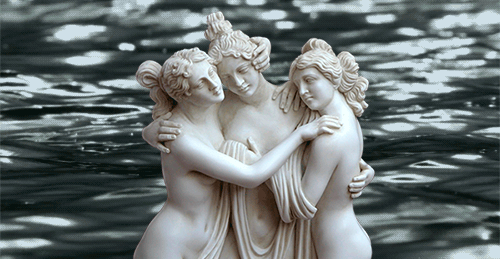
Most commonly the three Seasons are seen as Dike (personification and goddess of divine justice), Eunomia (goddess of good order and lawful conduct), and Eirene (goddess of peace). This, however, is their later interpretation. Slowly across the Classical and Hellenistic Periods the Horae changed from season deities to goddesses of order and justice.
So while Lady Dike, Lady Eunomia and Lady Eirene are correctly the Horae, they are also correctly Thallo (goddess of "green-shoots" and blooming), Auxo (goddess of vegetation and growth at full bloom), and Karpo (goddess of ripening plants and fruits of the earth).
It's good to note that each Goddess here is also a Daimon, a personification, of their respected rulings. For example, you may find confusion while speaking of Karpo as the personification of Autumn, due to her also being the goddess of ripe fruit. This could easily be meshed in one's mind with Lady Demeter, goddess of the Harvest, who is commonly associated with autumn. However, Lady Demeter is not a personification, and is an Olympian Deity, marking her vastly different from Lady Karpo as the Daimon and Goddess of Autumn itself.

In the Iliad, the Horae were keepers of Zeus's gate on Olympus. This is thought to be their earliest written record. Here the Horae were said to be born of Zeus and Themis, meaning they would be the later goddesses.
Primarily, the earlier variation of the goddesses were worshipped in rural Greece. The later were also adopted in rural areas, but less as nature deities and more of goddesses that represent farming prosperity. The earlier goddesses are often seen with Chione (goddess of snow) and Orithyia (goddess of cold mountain winds). Together, Thallo, Auxo, Karpo, Chione and Orithyia were seen as handmaidens/entourage to Persephone as the goddess of the turn of seasons.
Nonnus described the Horae as four daimons, the daughters of Helios (And sometimes Selene) and handmaidens of Queen Hera. These daimons are different from the previous group due to them not only being seen occasionally as winged children, but also being not goddesses but personifications. These daimons are Eiar (personification of spring), Theros (personification of summer), Phthinoporon (personification of autumn), and Cheimon (personification of winter). However, this variation of the Horae are from a Greek poet living in Imperial Rome, so take it with a very large grain of salt as a Hellenist. But if you worship the Roman pantheon, you might want to look more into this variation than others!
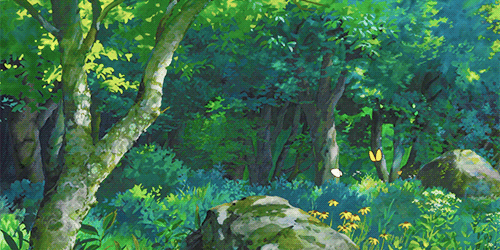
Personally, as a Hellenist myself, I look more towards the first two variations of the Horae. Not one is wrong in their claim to their sisterhood of the Horae. With Cronus's wheel of time comes change, and it is only natural for it change as such. I worship both trios (and Chione + Orithyia) as the Horae, because they both are! They are goddesses of time in their own respect, and all eight deserve reverence, worship, and devotion as goddesses that aid us in every turn of life.
HELPFUL LINKS:
#hellenic polytheism#hellenic witch#hellenism#hellenic deities#hellenic polytheistic#hellenic worship#hellenistic#horae#horai#Eirene goddess#Dike goddess
0 notes
Text
You know I'm messing around in the Greek Mythology sandbox creatively and trying to create my own sort of canon within the confines of canon or whatever.
And I really got excited by the idea of Demeter being the mother of the seasons.
Persephone, as we all know, is the Goddess of Spring. And it turns out (some sources say) that Demeter had a second daughter. The Goddess of Winter, named Despoina.
But... then I googled greek gods of the seasons:
By the Hellenistic period, the Greeks had four named seasons, represented by the Horae. The Four Seasons goddesses were named Eiar, Theros, Phthinoporon, and Kheimon (Spring, Summer, Autumn, and Winter, respectively).
I don't see Persephone ANYWHERE, which means Despoina is definitely gone. And I was starting to rant in my head how the ancients make it hard for me to have clean alternate canon because they have at least 5 deities for every damn thing in existence.
But then I read this:
They were the children of Helios and Selene, connecting the sun, moon, and seasons in mythology.
THEY ARE TITANS.
Thank GOD, that makes it easier.
1 note
·
View note
Text
The Four Seasons in Greek Mythology
-- daughters of Helios and Selene
-- handmaidens of Hera
-- Eiar = spring
-- Theros = summer
-- Phthinoporon = autumn
-- Cheimon = winter
Patreon | Ko-fi
#studyblr#notes#mythology#mythology notes#greek mythology#greek mythology notes#greek myths#greek myths notes#seasons#the four seasons#eiar#hera#helios#selene#cheimon#phthinoporon#theros#world religions#ancient religions#religion#religions
4 notes
·
View notes
Photo


7 notes
·
View notes
Photo
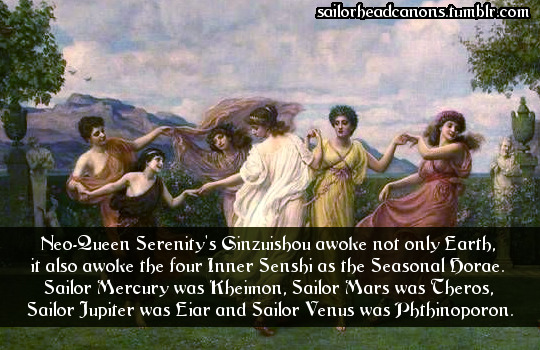
Neo-Queen Serenity's Ginzuishou awoke not only Earth, it also awoke the four Inner Senshi as the Seasonal Horae. Sailor Mercury was Kheimon (Winter), Sailor Mars was Theros (Summer), Sailor Jupiter was Eiar (Spring) and Sailor Venus was Phthinoporon (Autumn).
#Sailor Moon#Sailor Moon headcanons#Silver Crystal#Mizuno Ami#Hino Rei#Kino Makoto#Aino Minako#sailorstar9
40 notes
·
View notes
Text
Hades S/I
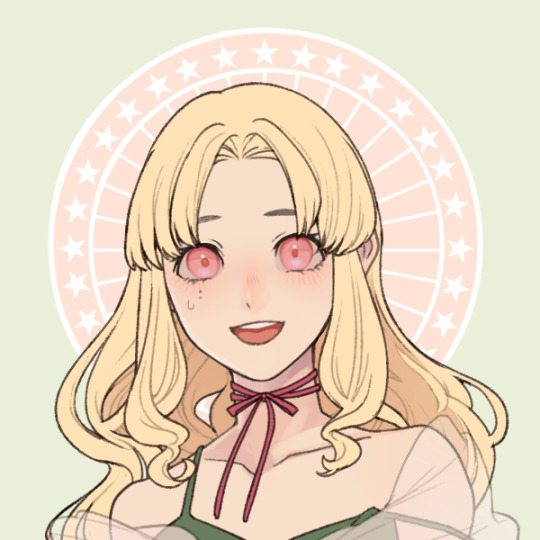
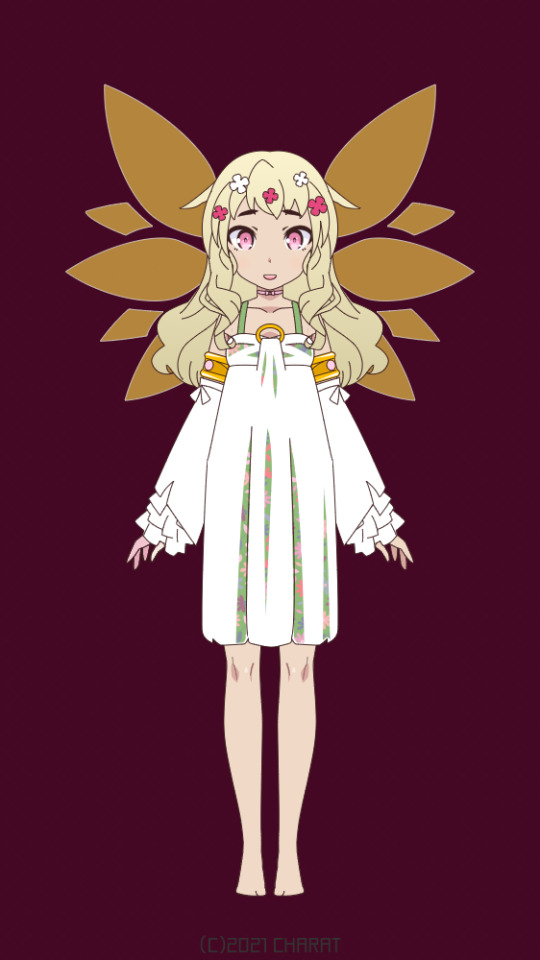
(Picrew and Charat GENESIS links to be supplied in a reblog - those orange things around her head in the latter were an (unsuccessful) attempt to recreate the light ray effect of the Olympians 😅)
Name: Eiar (pronounced ay-ar)
Title: Spring Incarnate
Relations: Helios (Foster Father)
Theros (Sister)
Phthinoporon (Sister)
Kheimon (Sister)
Demeter (Foster Aunt)
Aphrodite (Liege)
Hermes (Consort)
Affiliation: The Horae, Mount Olympus
Bio: The eldest of the four Horae, the seasons incarnate. They oversee the seasonal balance, promote the fertility of the earth and serve as Aphrodite's attendants, generally maintaining an amicable professional relationship with the major Olympians. Despite having been raised in the care of Helios, their true lineage is firmly distinct and a mystery. Gifted in casting, restoration and renewal, Eiar's choice to focus on healing rather than harming reflects her altruism and kindness; she tries to believe the best in all people. However, her emotions often get the better of her and she sometimes finds herself paralysed by uncertainty. But, when it counts, she'll be ready to protect the people she loves.
If given Nectar, she will give the player the Sensile Chrysanth.
Relationships:
Helios: She holds great respect for the man who brought her and her sisters up - he may not be their true father, but he loved them as if they were his own and taught them all that they know.
The Horae: They’re actually quadruplets, and like most siblings there’s a degree of healthy competition between them. As the first-born, Eiar often finds herself in the role of the mediator when disputes arise. Regardless, if one is hurt she'll be the first to their defence.
Demeter: Eiar and the rest of the Horae idolised her growing up, having eagerly received her tutelage. In the present, however, she holds some resentment towards her mentor for her enforcement of an eternal winter. She fears the consequences of such a temporal imbalance.
Aphrodite: Having served as her attendant for years, Eiar has often been responsible for tempering her liege's spite. The latter occasionally turns to the former for courtship advice.
Hermes: Childhood friends turned devoted lovers. Their strong bond is founded on a willingness to learn from their differences and to look out for each other.
Ok to Reblog!
@queenvonhresvelg
14 notes
·
View notes
Text
Greek Gods You’ve Never Heard Of, Part IV
More Personified Concepts
Dike/Dice (f) “justice”, moral order, fair judgment, socially enforced norms, conventional rules. Young slender woman carrying a scale with a laurel wreath. Represented in the constellation Libra. Roman: Justitia
Astraea/Astrea/Astria (f) “star maiden/starry night” Virgin goddess of innocence and purity, and associated with Dike (justice). the last of the immortals to live with humans during the Golden Age. Abandoned earth during the Iron Age. Became Virgo, next to Libra.
Adikia/Adicia (f) injustice, wrongdoing. Opposite of Dike
Angelia (f) daughter of Hermes, daemon of messages, tidings, proclamations (if this sounds like the word “angel”, it’s because our word angel comes from the same root: Greek “angelos”, meaning “messenger”)
Harmonia (f) harmony and concord. opposite of Eris (strife). (Also the name of a nymph of the Akmonian Wood, mother of the Amazons.) Wife of Cadmus, first king of Thrace. Sister of----->
Iasion/Iasus/Eetion, founder of the mystic rites on Samothrace; with Demeter fathered Ploutos, Philomelus, and Corybas, who gave his name to the Corybantes/Koribantes, dancing priests of Phrygia
Hedone (f) pleasure, especially sensual pleasures. daughter of Eros and Psyche; opposite of the Algos (pains). Roman: Voluptas
-----Four winged enforced siblings stood in attendance at Zeus’s throne: Zelus, Bia, Kratos, and Nike, children of the titans Pallas (m) and Styx (f). Along with their mother, they helped Zeus in the war against the Titans and became his constant companions after he triumphed.
Kratos/Cratos (m) daemon of strength
Nike (f) “victory,” goddess of victory, strength, speed. Associated with Athena. winged goddess. Roman: Victoria
Zelus/Zelos (m) “zeal.” Zelus and Bia were less famous than Cratos and Nike.
Bia (f) "Power, force & Might" was the personification of force and raw energy. when Prometheus was punished and was to be chained to a rock, Bia and her brother, Kratos, were sent to carry out this task, but Bia was the only one strong enough to actually bind Prometheus to the rock with the unbreakable chains.
Lampetia (f) “shining,” daemon of light. daughter of Helios (sun) and Neaera (nymph of Thrinacia), she and her sister Phaethusa guarded the ageless and deathless sheep and cattle of Thrinacia.
Phaethusa (f) “radiance”, daemon of the brilliant, blinding rays of the sun
Mnemosyne (f) memory. a titaness, mother of the Muses. Roman: Moneta
Polemos (m) “war,” daemon of war. Roman: Bellum
Pandia/Pandeia (f) “all brightness”, associated with the full moon. daughter of Zeus and Selene (moon)
Agon (m) struggle, contest
Phthonus (m) jealousy, envy, especially in love
the Horae/Horai/Hours (f, plural) “seasons,” goddesses of the seasons and the natural portions of time. sometimes goddesses of order in general, and natural justice. usually 3: Thallo, Auxo, and Carpo (the order of nature); or Eunomia (good order, lawful conduct) and her sisters Dike (justice) and Eirene (peace). in Argos there were two, winter and summer: Auxesia (possibly Auxo) and Damia (possibly Carpo).
First triad of the Horae, children of Aphrodite and Zeus:
Thallo/Thalette “the one who brings blossoms”, spring, buds, blooms, protectors of youth. Roman: Flora
Auxo/Auxesia “increaser”, summer, vegetation, plants, growth, fertility
Carpo/Carpho/Xarpo, the one who brings food, autumn, ripening, harvesting. Guarded the way to Mount Olympus
Second triad, children of Themis and Zeus
Dike “Justice”, moral justice, ever-young woman dwelling in the cities of man, Virgo. Roman: Iusticia (see Dike, Astraea: above)
Eunomia “order”, goddess of law and legislation
Eirene/Irene “peace”, peace and wealth, beautiful young woman carrying cornucopia, scepter, and torch or rhyton. Roman: Pax
Third triad:
Pherusa, substance, farm estates
Euporie/Euporia, abundance
Orthosie/Orthosia, prosperity
The Horae as the four seasons:
Eiar (spring), Theros (summer), Phthinoporon (autumn), Cheimon (winter)
The Horae as the hours: tutelary goddesses of the times of day
9 hour system:
Auco/Auxo, Eunomia, Pherusa, Carpo, Dike, Euporie/Euporia, Eirene/Irene, Orthosie/Orthosia, Thallo
10 or 12 hour system:
Auge (first light) not original to the set
Anatole/Anatolia (sunrise)
Mousike/Musica (morning hours of music and study)
Gymnastike/Gymnastica/Gymnasia (morning hours of education, training, exercise)
Nymphe/Nympha (morning hours of ablution/bathing)
Mesembria (noon)
Sponde (libations poured after lunch)
Elete (prayer, first of the afternoon work hours)
Akte/Acte/Cypris (eating and pleasure, 2nd of the afternoon work hours)
Hesperis (end of the afternoon, start of evening)
Dysis (sunset)
Arktos/Arctus (night sky, constellation) not original to the set
(See the rest of the series)
186 notes
·
View notes
Text
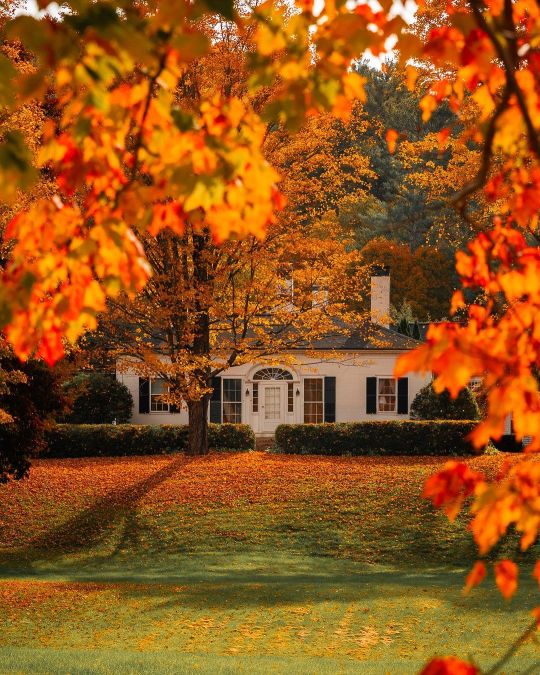
By cobxrossi
#autumn#fall#cozy#nature#cosy#october#fall blog#autumn blog#fall foliage#autumn cozy#Herbst#jesien#podzim#syksy#automne#phthinoporon#herfst#najaar#fomhar#autumno#autumnus#otoño#sonbahar#osin´
3K notes
·
View notes
Text
Gods and Goddess Masterlist
Chaos 1
Nyx 1 2 3 4
Nyx/Erebus 1
Erebus 1 2 graveyard
Eros
Gaea
Tartarus
Ouranos
Hermera
Aether
Pontus
Thalassa
Hydros
Ananke
Phanes
Nereus
Thaumas
Phorcys
Keto
Thoosa
Eurybia
Aegaeon
Aetna
Doris
Glaucus
Oceanus
Koios
Krios
Hyperion
Iapetus
Kronos
Theia
Rhea
Themis
Mnemosyne
Tethys
Phoebe
Asteria
Leto
Apollo
Artemis
Astraeus
Pallas
PersesHekate
Styx
Nike
Kratos
Zelus
Bia
Eos
Atlas
Prometheus
Epimetheus
Monoitos
Clymene
Achiale
Iris
Arke
Hydaspes
Circe
Aidos
Helios
Pasiphae
Selene
Dike
Astraea
Nemesis
Ikhniae
Pandia
Herse
Clio
Euterpe
Thalia
Melpomene
Terpsichore
Erato
Polyhymnia
Ourania
Kalliope
Triptolemus
Achlys
Thanatos
Clotho
Lachesis
Aisa
Moros
Elpis
Pheme
Ker
Hypnos
Morpheus
Phantasos
Icelus
Pasithea
Epiales
Momus
Eupheme
Aglaia
Eurynome
Asopus
Eukleia
Euthanasia
Philophrosyne
Penia
Amechania
Ptocheia
Ploutos
Eros
Attis
Tyche
Eirene
Eunomia
Adikia
Ate
Peitho
Hybris
Koros
Dyssebia
Pothos
Anteros
Himeros
Hedone
Psyche
Oizys
Apate
Dolos
Aletheia
Philotes
Geras
Eris
Sophrosyne
Epiphron
Eleos
Anaideia
Deimos
Phobos
Ponos
Lyssa
Penthos
Horcus
Poine
Praxidike
Arete
Soter
Kakia
Ktesios
Homonoia
Lethe
Aergia
Hormes
Homados
Alala
Polemos
Proioxis
Palioxis
Alke
Ioke
Kydoimos
Harmonia
Leukothea
Palaemon
Thyone
Silenus
Leneus
Astraeus
Hestia
Demeter
Hera
Hades
Melinoe
Makaria
Poseidon
Zeus
Bythos
Aphros
Hebe
Ares
Eileithyia
Hephaestus
Pyriphlegethon
Cocytus
Acheron
Ascalaphus
Enyo
Enyalius
Persephone
Zagreus
Bootes
Despoena
Eubuleus
Karme
Britomaris
Khrysothemis
Trochilus
Eleusis
Dysaules
Carmanor
Amphitrite
Triton
Kymopolia
Benthesicyme
Proteus
Aristaeus
Epione
Iaso
Panakeia
Hygeia
Aegle
Akeso
Telesphorus
Athena
Metis
Poros
Aporia
Aphrodite
Dione
Hermaphroditus
Priapus
Iakkhos
Aura
Lelantus
Boreas
Zephyrus
Notos
Eurus
Eosphoros
Hesperus
Khloris
Karpos
Khione
Oreithyia
Opsis
Loxos
Hekaergos
Hermes
Maia
Maira
Pan
Akis
Angelia
Palaestra
Dionysos
Methe
Telete
Sangarius
Phasis
Thallo
Pandrosos
Auxesia
Karpo
Damia
Kaikias
Lips
Skiron
Eiar
Theros
Phthinoporon
Cheimon
Auge
Anatolia
Musica
Gymnasia
Nympha
Mesembria
Sponde
Elete
Acte
Hesperis
Dysis
Arktos
Aeolus
Ganymedes
Adonis
8 notes
·
View notes
Photo
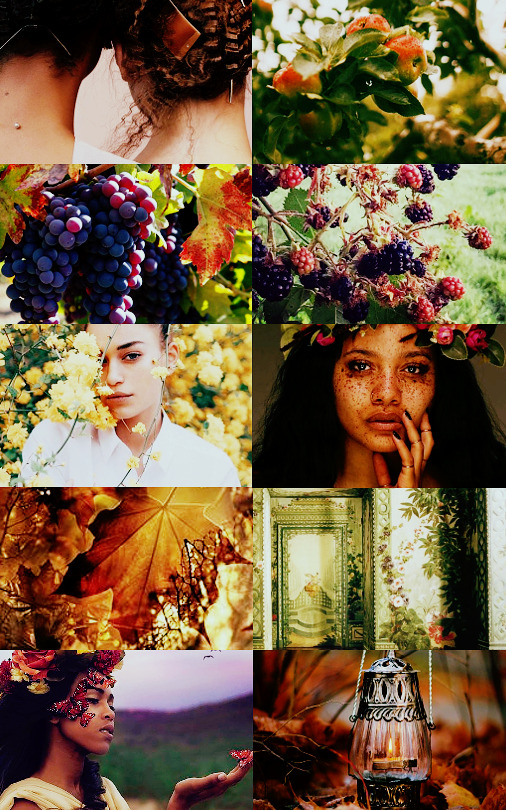
mythology aesthetics
HORAE
In Greek mythology the Horae were the goddesses of the seasons and the natural portions of time. The number of Horae varied according to different sources, but was most commonly three: either the trio of Thallo, Auxo, and Carpo (goddesses of the order of nature) or Eunomia (goddess of good order and lawful conduct) and her sisters Dike (goddess of Justice) and Eirene (goddess of Peace), or Pherusa (substance, farm estates), Euporie (abundance), and Orthosie (prosperity). If there were four, they were the daughters of Helios and Selene, and the handmaidens of Hera, known as Eiar (Spring), Theros (Summer), Phthinoporon (Autumn), and Cheimon (Winter). X
82 notes
·
View notes
Text
Autumn - A short story
Summer wakes her with a kiss. The kiss is cold like morning dew but Summer’s heart is warm. She knows this. She knows because they have danced this same dance together. Year after year after year. Longer than either of them can remember. Summer wakes her with a kiss and she opens her eyes to Summer’s face. Her red lips. Her sun-bleached hair. The wrinkles at her eyes when she laughs and takes her hand.
Summer wakes her with a kiss as the late morning sun shines through dirty windows. Coffee is brewing somewhere. The cat is still asleep. Rolled up in a ball of black fur. Soon, he will open his orange eyes and they will walk together.
Summer’s cat is ancient by now. A fat old tomcat stretching in the morning sun. She cannot tell if Summer has the same cat every year, or if she picks up a new ginger stray at every maypole. But here he is, year after year. Stretching his body and trotting after them as they walk down the street. Her own, young black cat is full of energy still. He disappears for hours catching mice and birds in the long afternoons. But he is always there, always close, following her steps wherever she goes.
Summer wakes her with a kiss and takes her hand. And for a while they walk through the city together. Summer, always barefoot, getting goosebumps in her sundress when they embrace on train platforms and while sipping coffee on park benches watching the ducks. The late summer breeze turning colder day by day.
Summer wears her hair loose and her smile bright and her kisses taste like strawberries. In her youth she is roses and sunshine and the soft, blue waves. She is the long grass swaying in the wind and the tips of the willow’s branches playing with the river. Even when she is old and tired and fading away she shines still golden with her laughter. She lounges on long afternoons rocking slowly back and forth in her yellow rocking chair as clouds move over the blue skies. Even when her face is tanned and weathered and worn and her smiles make crinkles in her skin. Even then, she still sings softly under her breath. Her voice carrying like a stream through mountains as she picks flowers for her hair. And everywhere Summer goes, so does her cat. He is slow and warm and steady. He will lick your finger and roll on his back so you can scratch his fluffy tummy. But just like Summer he will change his mind within a heartbeat and hiss at you.
Summer has a temper. She will love you and she will smile but she will shout and cry and scream. She is the thunder in the night and the clouds bursting rain upon the fields. She is the forest roaring in an August storm. She will drown you if you let her but she will always dry you again.
Summer is easy to love and she likes i that way. She is a giver and a carer and she wants to be adored, but she is not one to laugh at.
Summer wakes her with a kiss, cold as morning dew. She wakes her with a kiss and takes her hand, and for a while they dance together as the apples ripen and the wheat is harvested. As the sea caresses the beach and coats begin to colour the streets.
For a while they dance together but Summer is weary and old. Her bones are growing cold and her fingers growing stiff. She watches the sun set earlier and earlier as the days pass and one day she smiles a sad, tired smile and she lays herself down to sleep.
Summer wakes her with a kiss but soon she is alone again.
She doesn’t need a name. When people ask her she will make something up, but they seldom do. She could have called herself Autumn, Autumno, Anonna or even Phthinoporon. Here they call her Herbst but that does not matter. In other places they know her as Sügis or Fómhar or Höst. It does not matter because she has been here longer than them and she knows who she is. She does not need a name. She has many names and none and their words are only fleeting.
She prefers to go unnoticed. She dresses in browns and reds and yellows, she wears her boots with flat soles and her lips with no colour. She lets her hair grow wild, catching autumn leaves in her thick, black curls as they hug the shoulders of her coat.
Summer likes to be adored and Winter wants to be admired. Spring wants to be awaited and longed for and praised at her arrival. But her. She prefers a quiet existence.
She is books in cafes and warm drinks enjoyed outside. She is the autumn breeze running through the streets. In her youth she is fast and fierce and fearless. She is the storms ripping up ancient trees and the rain hammering on windows. But she is also the warm, golden autumn sun. Dancing across the city squares and reflecting in the painted windows of churches. She is a soft breeze in the trees and the drizzle of a quiet rain.
When she begins her work the city is a contrast of grey concrete and green trees. By the time she is done it will be dark trees and grey concrete. It will be cold winds and warm boots but that is for the one who comes after her. In her time, she is golden and she paints the city to match. She is the golden light of the sun reflecting on shop windows. She is long, warm afternoons and the people drinking coffee on street cafés saying that perhaps summer hasn’t quite left them yet. She is early nights and dark ones and she is the flowers wilting. She crowns every tree with a halo of gold and she turns the parks into a rainbow of green, gold and red. Hers is the golden hour and she stretches it to last for a month.
She wakes up young in September. Her skin is smooth and her steps are light. Her eyes are bright and her laughter is in the wings of geese flying south high above the city. In her youth she is distracted. Wandering here and there. Leaning close to Summer in the passing breeze and kissing her cheek with soft lips.
In the beginning she is slow and inconsistent. She brings a bit of cold and she brings an early night. She touches leaves when she fancies and watches them turn gold at her touch. She lets the sunflowers wither and the winds pick up. She breathes in the salt sea air and blows it out of her mouth like a storm. They watch her wind flow down the streets picking up leaves and making them dance. It makes Summer laugh and that is why she does it.
Then, Summer leaves her and she is alone. She is older and stronger and larger somehow. Her skin is thick and her hands are rough. She seizes the clouds with her fists and she turns them dark and broody. She spreads out her arms and spins around her self again and again and again whirling up a wind and sends it down the city streets. She laughs to herself when the people close their coats and huddle from the rain. She sings strong and fast and loud as her breath blows the rain against the windows and turns their umbrellas inside out.
By the end, she is tired. Her hands are wrinkled and rough and her skin is thin like paper. When she sees her face in the puddles she create, she hardly knows who she is. The cat too, is growing older, greyer. He is slower somehow. Walking in her footsteps on his soft, soundless paws. She knows it is like this every year and it does not matter. Next year she will wake up again. Fresh as the morning dew with Summer by her side.
This is the way it has been for years and years without end. She does not remember the first time nor will there ever be a last. This is the way it has always been, but these days something is different.
These days Summer is briefer and angrier and dryer. She sets forests on fire and she whips up storms against the coasts. These days Winter is longer and fiercer and clings on to the land like a plague. The two are always fighting and screaming and crying. These days Spring can hardly carve out of month for herself. Spring who was always shy and timid and kind who now wakes up too early and only for her flower buds to freeze and die. These days. These past years.
Something is different.
She can taste it in the air and see it in the skies. She sees the scars of smoke the planes leave on her clear October skies. She sees the smog from cars obscuring the warm autumn sun. She sees the plastic among the leaves and the oil slushing in the waves against the cliffs. She stands on a street corner and watches the cars drive buy. The smoke from their exhaust pipes puffing out and upwards in clouds. She watches the humans with their eyes down and their headphones in. She watches them not seeing anything.
In her youth, years ago, these streets were fields. She would sweep in golden and bountiful. The skies were wide and blue and she would bless the crops with her fingertips as she passed. The people would dance and sing and drink in her honour and she would join them. She remembers dancing in barns with flowers in her hair. Her long black curls falling soft around her shoulders. Back then, things were different.
Now the people do not see. They do not care. They move in flocks and they keep their eyes down. They fight and shout and kill and cry while their planet crumbles around them. While their planet burns and drowns and freezes over, they walk on. She stands there. Silently watching as night falls and sun rises. She stands. Clenched fists and tired eyes and she feels the anger growing inside her. It whirls around her like a hurricane. At first, it is only on the inside. Then, it starts picking up leaves. She forgets herself and let’s it spread. Wind howling around her. Clouds gathering over her head dark and thick and angry. Rain falling hard on her shoulders and her hair. The cat hisses and hides under her coat, his fur already wet with rain. Her anger so hot and busy she does not care that people are turning to look. Ripping their gazes from their phones to watch at she gathers a storm around her.
“Let them watch” she thinks. “Let them see my anger”. “Let them feel my rage” she mutters under her breath as she sends a whirlwind down the street, letting the clouds grow and rise until they embrace the whole city. Perhaps this will wake them up.
Her rage is swift and sudden. It sweeps over the city and she has no mercy left in her now. The trains stop running and the busses stand still on the roads. The people hurry from their offices and into their homes. She rips up trees in the parks and hurls them on the ground. She pushes over fences and signs and she sends them flying down the street. She darkens the skies and turns the roads into rivers.
She watches an umbrella being torn from the hands of a man in a suit. He puts his briefcase over his head and runs. Hiding from the rain and the storm. Hiding from her rage. She hears herself laughing as his umbrella tumbles down the street.
Perhaps this will remind him of how it used to be. Perhaps tonight he will tell his children how autumn used to be different. How she used to be kind and warm and generous. Perhaps. Perhaps he will remember she thinks. But humans forget things so easily.
The rain is hammering on the windows of shops and on the roofs of cars. She is standing there soaked to the bone in her anger and she feels the energy seeping out of her. She wakes up young in September and her skin is smooth and her laughter is warm. Now, she has no laughter left in her. Now she is tired and old and she feels the first frost biting at her bones.
She sighs and the rain is but a drizzle, running down the street. The storm is clinging to the air but it is quieter now. Perhaps the people will see. Perhaps they will remember. She does not know and by now she is too tired to care. Perhaps there is nothing she can do to make them see.
Afterwards the rumours will talk of how the storm started. Of how some people say they saw an old lady with an angry cat. Standing at a crossroads with her arms raised and anger written in her face. With wild eyes and fire in her veins. Some will say she summoned a storm and some will say she calmed it down. Some will have watched her stand there for days and know that she did both. But they will not understand. Some will say they watched her grow older as the storm passed over her heard. That they watched her eyes grow tired and her back bend. That they watch the energy flow out of her as the rain flowed down the streets.
Afterwards, people will say that this was the night winter arrived and they are not wrong.
When she wakes from her rage the sun is creeping over the horizon in a frozen mist. The world is bleak in this morning. Covered in frost. Pale and timid and hushed. Shivering under the cars and the hurried boot prints of dawn as she walks through the streets. She can smell the first snow in the air and she knows that she is close.
She walks slowly down the streets, as the last leaves let go of their branches. Her knees ache and her feet are cold. Her skin wrinkles and her fingers are stiff when she pulls on her gloves. She knows it is time.
She is close.
And then, she turns around a corner and she sees her standing there. Leaning against the wall of an alleyway. With her long, white coat and her black army boots, smoking a cigarette with her eyes to the sky. Her white Persian cat lounging over her shoulder like a collar. The first snow flakes melting in its fur. She is all youth and defiance now and she is happy to see her.
Winter embraces her, bends down and kisses her forehead, then her lips. They lock eyes and she knows she did her turn.
She can rest now.
Thank you for reading. If you want more. You can find more of my stories here.
This story was part of my 12 stories project and for this one I wanted to try something a little different. I tried to give this more of a feel of mythology or legend than my usual stories. Which is also why this doesn’t have any dialogue or a plot like I’d usually do. Hope it worked ¯\_(ツ)_/¯
You can read more about my 12 stories project here. Again. Thanks for reading. Feel free to share, comment, whatever floats your boat - it’s all appreciated.
Also. Fun Fact. This story was more or less entirely inspired by this picture of a cat.
2 notes
·
View notes
Text
9.
(A/N: This installment contains potentially triggering content.)
He loves her. This much he knows. Scully is the sea, all salt and moonlight, and she says his name like she’s luring him to the rocks. She leaves a dry, dusty curl of petal on his desk, like one last kiss from Phthinoporon.
This work is his life, not theirs, and it’s a lonely road to Graceland.
The office is quiet that morning. Coffee going cold, the diligent scritch of Scully’s Waterman. They shed their suit jackets, Mulder loosens his tie. The hush of rain on the skylight, files and books spread on the desk, research for Arlington. The office is quiet that morning. And then it isn’t.
“The condoms,” Mulder says, leaning against the filing cabinet with his arms crossed, studying a scuff mark on his shoe. “You’ve been... this is why.” There’s a hot flood rolling in his belly.
He glances up, and her beryl eyes scorch him. She gingerly sets her pen down. “Bambi Berenbaum,” she says, slowly, as if he’s stupid. “Detective White. Don’t be juvenile, Mulder.”
“Scul-”
“I’m not your wife. Right? Isn’t that how you put it? I can sleep with whomever I choose. You certainly exercise the same freedom.”
Mulder sees red.
In one swift, clattering movement, he lunges, and she leaps to her feet. He jabs a finger at her. “Get your goddamned story straight before you go hurling accusations.” That infuriating sneer of hers, a scatter of scrapes on her brow. She abandoned him. She betrayed him.
“The only time I ever fucked anyone else was when they took you,” he continues, and Scully blinks unevenly, cracks forming in the marble. “I wore your cross,” Mulder purrs, low now. “She touched it. She put it in her mouth. I fucked her, wearing that -” he gestures to the glint on her breastbone, “and then I went with your mother to pick up your tombstone.”
Her hand flies in his periphery, but he’s Quantico-trained and sharp with ire. He catches her wrist, reinforcing Jerse’s bruise, yanking her body to his. A small, sharp gasp of pain, soft skin, fine bones, a flash of terror in her eyes. He’s filled with sudden rage at her vulnerability, at how small she really is, at how easy it would be to force himself on her. She tilts her chin up at him defiantly, and something dark takes over.
Twisting her wrist behind her back, he wrenches her around, shoving her face-first into the desk. She cries out, and the worklamp crashes to the floor. Easy, too easy. Adrenaline thrums in his blood, a feral pulse.
He holds her in place, drags a hand up the muscled column of her thigh, over the hoarse texture of hose, up past the hem of her skirt. She squirms deliciously against him, struggling, and his cock swells against the tight curve of her ass.
“Tell me you don’t want me,” he demands, jaw clenched. Don’t let me do this to you, Scully. He wrestles her skirt over her hips, one-handed. Her tattoo peeks in a curve over the waistband of her pantyhose, a landscape of bruises washed beige under the rasp of nylon. Good god, Jerse beat the shit out of her. The snake is bright and pagan in the lurid jungle of her battered skin, and he despises the beauty of it all, this evidence of Scully’s private wilderness, her mythical underworld.
Pain and lust surge through him, and he folds over on top of her, releasing her wrist to grab a fistful of hair. “Tell. Me.” he grits through his teeth, working his cock out of his pants with his free hand. She responds with a whimper and a salacious roll of her hips, reaches her arms forward like a cat.
In a frenzy, he scrapes her pantyhose and underwear down, fighting a pang of nausea at the true, deep colours Jerse left. He shoves his fingers between her thighs. She’s hot and slippery, thick with want.
She likes this.
He slides his fingers over her hard little clit and pinches it, cruelly, earning a yelp.
His hands find her hips, and in one brutal, ferocious thrust, he fills her. No condom, just searing velvet friction, flesh on flesh, her shrill, surprised yowl. He palms the serpent, and Scully tries to twist beneath him, hands scrabbling, but he’s got her pinned. So, so easy. He fucks her like he hates her, and it feels so damn good.
“Tell me to stop,” the last decent part of him begs her. Sharp, deep thrusts, and she’s moaning into the creaking desk, smudging lipstick all over the report she’d been reviewing. Her wordlessness unnerves him. He leans harder, crushing her against the wood.
“Did he fuck you like I can?” he growls, bitter, into her ear. “Was it good for you?” He feels a fresh rush of wetness around him. Shit. She is soaking. “Did you get off on screwing a killer? I’ve killed too, baby. Did he make you come like I do?” Scully pants and wets her lips with her tongue, eyes crumpled shut.
“What did he call you?” She quivers underneath him. “Hmm? Did he call you Dana, Dana?”
And that’s what does it. She comes hard, jerking and wailing and squeezing him so tightly that it hurts. He rips himself out of her and erupts onto her tattoo, smearing his come into the serpent with the head of his cock, marking his territory.
Scully gets her slap in, after all, and a juicy “Fuck you,” too.
“You just did,” Mulder reminds her, and helps her with her coat at 5.
(1) (2) (3) (4) (5) (6) (7) (8)
180 notes
·
View notes
Text
A Dalliance with Helios’ Daughters
Eiar dances through grassy fields
her flesh blooming pink and gold but not yet ripe
leaving mortal man tempted to future pleasures
craving erotic delights
yet uncovered from floral treasures
her every movement spring’s reawakening personified
Her sister comes as summer’s heat builds
Theros in brilliant fruited glory
plump curves swing heavy as fruit from a branch
drawing men to touch and caress
juice dripping from ravenous mouths
promises of ample bounty for all
Autumn’s sister comes, Phthinoporon
she flings her covers aside
exposes her sun-bronzed flesh aglow
dusted gold and stained crimson
dark eyes betraying growing melancholy
not assuaged by the comforts of mortal hands
At last pale Kheimon draws near
rapture has left her spent
a spray of silver magic paints her flesh
abandoned, she withdraws into winter
frigid moods exposed
leaving mortals longing for renewed heat
0 notes